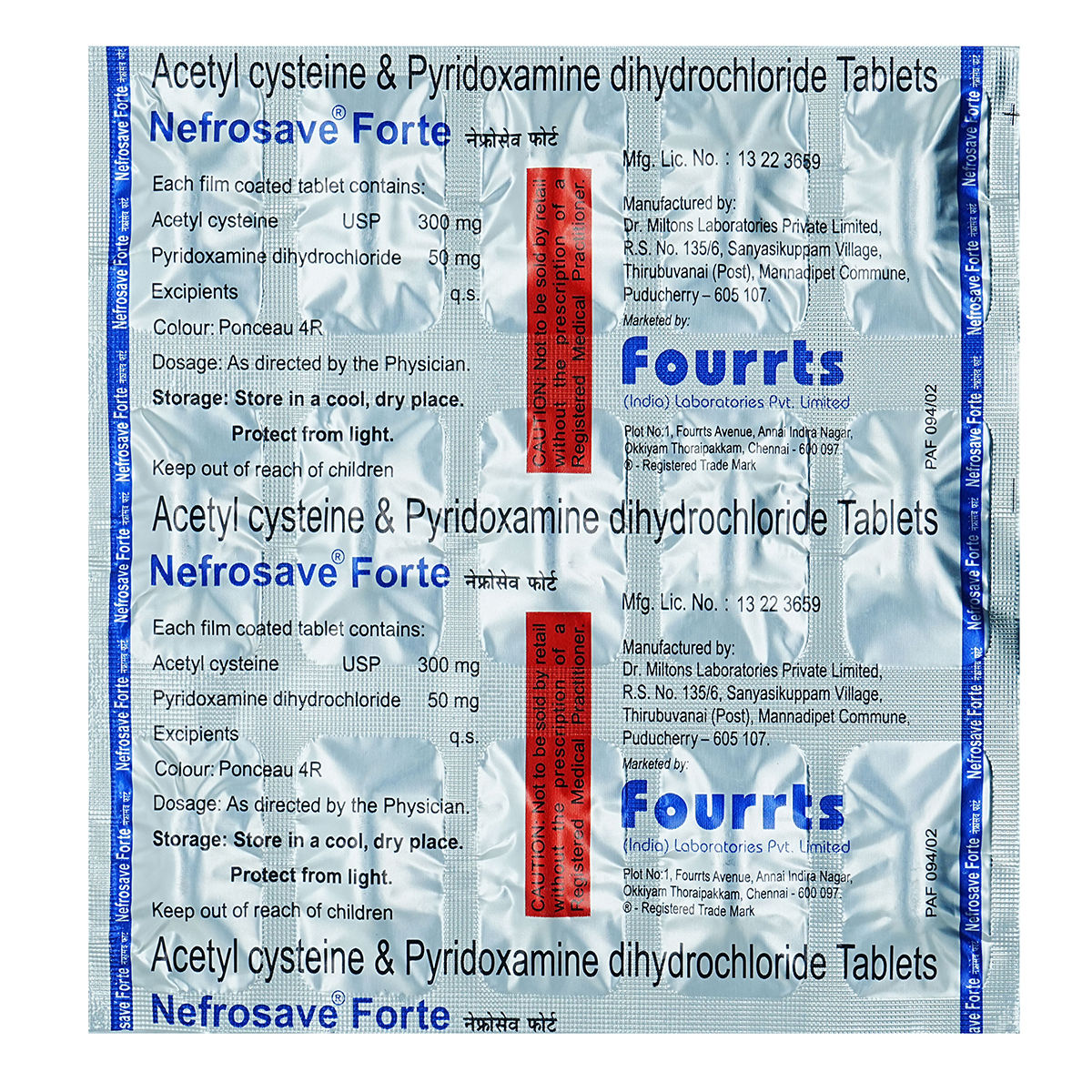Renocell Tablet 10's
Renocell Tablet is a combination medication used to treat chronic kidney disease (CKD). It contains acetylcysteine and pyridoxamine, which help the body metabolism of fats, carbohydrates, and proteins, thereby assisting in maintaining energy balance in kidney disease patients. Common side effects include nausea, vomiting, diarrhoea, and abdominal pain.
₹233.1*
MRP ₹259
10% off
₹220.15*
MRP ₹259
15% CB
₹38.85 cashback(15%)
Free Delivery
With Circle membership
(Inclusive of all Taxes)
This offer price is valid on orders above ₹800. Apply coupon PHARMA10/PHARMA18 (excluding restricted items)
Know Your Delivery Time
Provide Delivery Location

Whats That

Secure Payment

India's Most Trusted Pharmacy

Genuine Products
Manufacturer/Marketer :
Consume Type :
Return Policy :
Expires on or after :
About Renocell Tablet
Renocell Tablet is used to treat chronic kidney disease (CKD). Chronic kidney disease is characterised by a progressive loss of kidney function over time. Kidneys remove waste and excess fluid from the blood. Waste can accumulate to dangerously high levels in the blood due to kidney disease, making you sick.
Renocell Tablet contains Pyridoxamine dihydrochloride and Acetylcysteine. Acetylcysteine acts as an antioxidant and protects body tissues in people with chronic kidney disease and those on dialysis. Pyridoxamine dihydrochloride acts as a catalyst in the metabolism of fats, carbohydrates, and proteins in the body, thereby assisting in maintaining energy balance in kidney disease patients. As a result, Renocell Tablet aids in treating chronic kidney disease.
To treat your condition effectually, continue using Renocell Tablet for as long as your doctor has prescribed it. Renocell Tablet may cause nausea, vomiting, diarrhoea, and abdominal pain in some cases. The majority of these side effects do not necessitate medical attention and will resolve gradually over time. If you are experiencing these side effects regularly, consult your doctor.
Please do not take Renocell Tablet if you are allergic to Pyridoxamine dihydrochloride, Acetylcysteine or any of its ingredients. Consult your doctor before using Renocell Tablet if you are pregnant or breastfeeding. Limited information is available regarding the usage of Renocell Tablet in children, so please consult a doctor if you have any concerns. Keep your doctor informed about your health condition and all the medicines you take to rule out any side effects.
Uses of Renocell Tablet
Medicinal Benefits
Renocell Tablet is used to treat chronic kidney disease. It contains Pyridoxamine dihydrochloride (a vitamin B6 derivative) and Acetylcysteine (an antioxidant), which help in various ways prevent kidney damage or injury. Thus, it effectively improves kidney function, reducing complications in patients with chronic kidney disease.
Side Effects of Renocell Tablet
- Nausea
- Vomiting
- Diarrhoea
- Abdominal pain
Directions for Use
Storage
Drug Warnings
To effectively treat your disease, continue using Renocell Tablet for as long as your doctor has prescribed it. If you have had a skin response or irritation to any medicine, do not use Renocell Tablet without consulting a doctor. Consult your doctor before using Renocell Tablet if you are pregnant or breastfeeding. Before taking Renocell Tablet , inform your doctor about your medical history and other medications you are currently taking to rule out any potential negative effects. It is unknown whether consuming alcohol with Renocell Tablet is safe. However, it is best to avoid or limit alcohol consumption as a precaution.
Therapeutic Class
Diet & Lifestyle Advise
- A healthy, balanced diet lowers your risk of kidney disease. Keep your blood pressure and cholesterol at a healthy level.
- A well-balanced diet should include plenty of fruits and vegetables.
- Include starchy foods such as potatoes, wholegrain bread, rice, or pasta in your main meal.
- For a protein source, include beans or pulses, fish, eggs, or meat in your daily diet.
- Limit intake of saturated fat, salt, and sugar.
- Limit the amount of potassium or phosphate in your diet.
- Quit smoking. Avoid or limit the consumption of alcohol.
Habit Forming
How Renocell Tablet Works
What if I have taken an overdose of Renocell Tablet
Alcohol
Caution
It is not known if alcohol interacts with Renocell Tablet . However, it is advisable not to take or limit alcohol as a precautionary measure.
Pregnancy
Caution
Please consult the doctor. There are no adequate and well-controlled studies on pregnant women. Your doctor will prescribe only if the benefits outweigh the risks.
Breast Feeding
Caution
Consult your doctor as there is no substantial research yet on the use of Renocell Tablet in breastfeeding/nursing mothers.
Driving
Safe if prescribed
Renocell Tablet may not affect your ability to drive or use machinery.
Liver
Caution
Limited information was available about the use of Renocell Tablet in patients suffering from liver impairment. Please consult your doctor if you have any concerns. Your doctor will prescribe only if the benefits outweigh the risks.
Kidney
Safe if prescribed
Renocell Tablet can be taken safely when prescribed. Usually, it does not affect the kidney.
Children
Caution
Limited information is available regarding the usage of Renocell Tablet in children, so please consult a doctor if you have any concerns.
Country of origin
Manufacturer/Marketer address
Author Details
We provide you with authentic, trustworthy and relevant information
FAQs
Disclaimer
Product Substitutes










